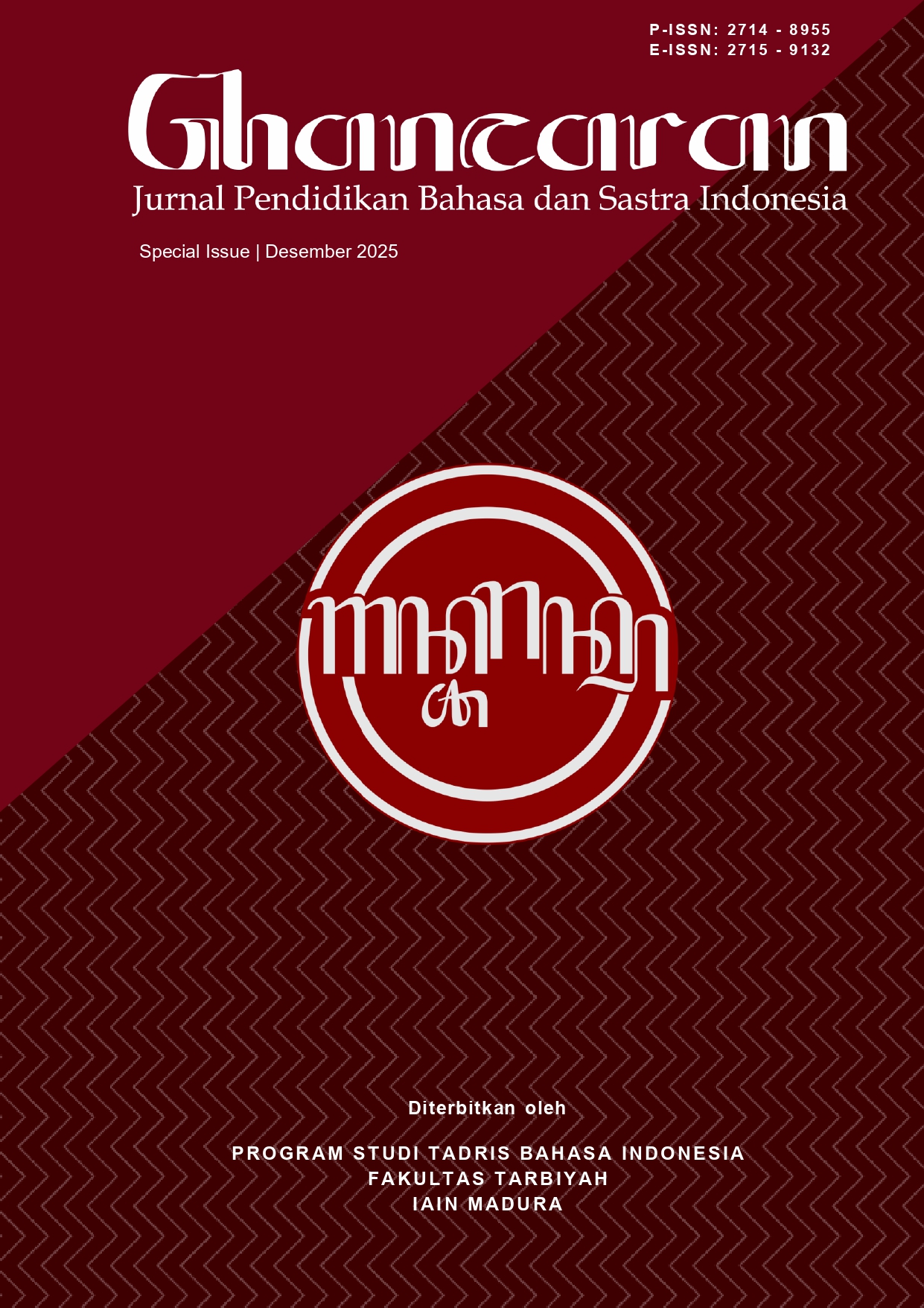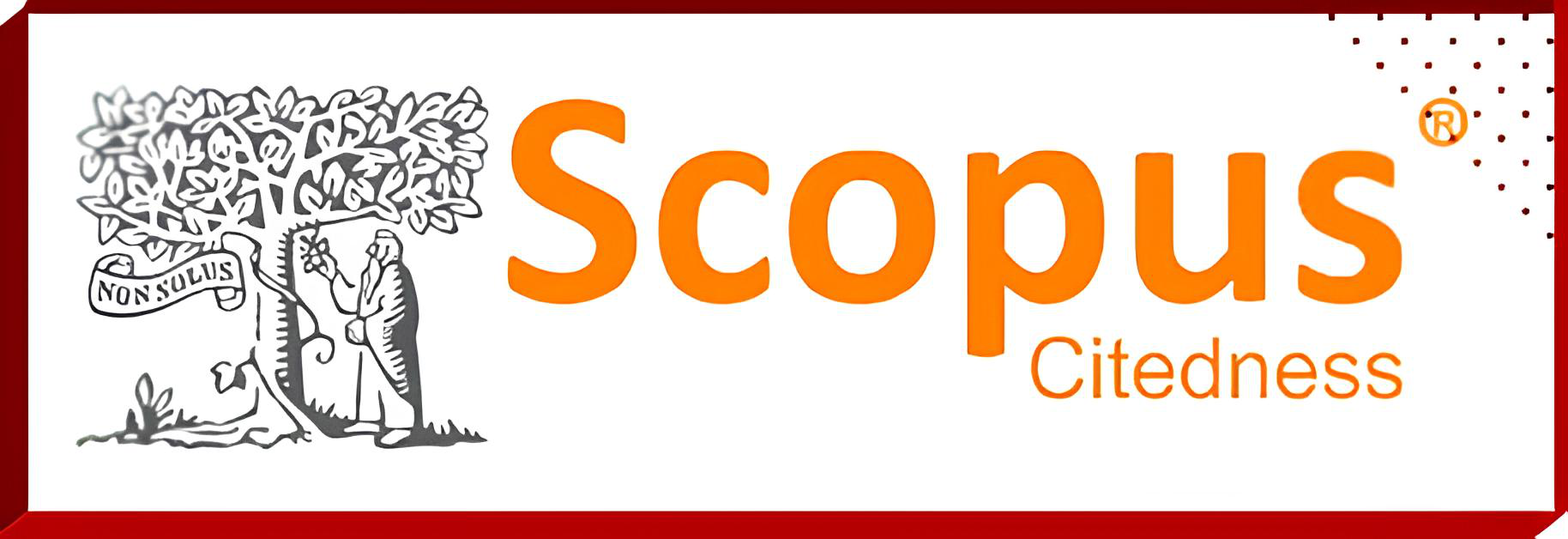Errors in the Use of Indonesian Language Register by Foreign Learners in BIPA Learning
 Abstract views: 434
,
Abstract views: 434
,
 PDF downloads: 171
PDF downloads: 171
Abstract
The appropriate use of language register is crucial in BIPA (Indonesian for Foreign Speakers) learning. However, many learners still struggle to adjust their language choice according to the communication context. This study aims to (1) describe the types of errors made by BIPA learners in choosing language register and (2) describe the factors causing these errors. Using a qualitative approach with the Systematic Literature Review (SLR) method, the study analyzed eight academic sources from the last 15 years, obtained from Google Scholar and Science Direct, focusing on errors in language register selection and BIPA learning. The findings reveal common errors, including difficulties distinguishing formal and informal registers, limited understanding of informal expressions, interference from native languages, confusion in recognizing language register differences, speaking anxiety, inappropriate use of formal registers in informal settings, impolite word choices, and use of informal registers in formal contexts. Contributing factors include limited awareness of audience-based register selection, insufficient practical learning, restricted vocabulary leading to interference, the influence of local dialects, nervousness and fear of mistakes, weak grammar knowledge, inappropriate word choices, and differing cross-cultural standards of politeness. These findings highlight the need for more contextual teaching materials in BIPA to enhance learners’ communicative competence.
Downloads
References
Aini, I., Hutagalung, S. M., Huszka, B., & Stark, A. (2025) Narrating Indonesia to Non-Native Speakers: Cultural Representation and Digital Transformation in BIPA Instruction. International Journal of Arts and Social Science, 8(6), 244-280.
Asteria, P. V., Rofiuddin, A., Suyitno, I., & Susanto, G. (2023). Indonesian-Based Pluricultural Competence in BIPA Teachers’ Perspective. Eurasian Journal of Applied Linguistics, 9(1), 190-201.
Brown, P., & Levinson, S. (1978). Universals in Language Usage: Politeness Phenomena. In E. Goody (Ed.), Questions and Politeness: Strategies in Social Interaction (pp. 56-310). Cambridge University Press.
Djalolovna, M. S. (2025). The Evolution of Informal Speech: How Language Changes in Everyday Conversations. Web of Teachers: Inderscience Research, 3(1), 109-113.
Hung, B. P., & Khoa, B. T. (2022). Communication Strategies for Interaction in Social Networks: A Multilingual Perspective. Artificial Intelligence and Cybersecurity, 195-208.
Kramsch, C. (1998). Language and Culture. OUP Oxford.
Lestari, O. W., & Jazeri, M. (2022). Tindak Tutur oleh Pemelajar BIPA di Muslim Santitham Fundation School Thailand: Kajian Pragmatik Bahasa Antara (Interlanguage Pragmatics). Diksatrasia: Jurnal Ilmiah Pendidikan Bahasa dan Sastra Indonesia, 6(1), 103-110.
Lo Bianco, J. (2010). The Importance of Language Policies and Multilingualism for Cultural Diversity. International Social Science Journal, 61(199), 37-67.
Mardikantoro, H. B., Siroj, M. B., Utami, E. S., & Kurniati, E. (2023). Investigating Indonesian Language Varieties in Social Media Interactions: Implications to Teaching Practices. Indonesian Journal of Applied Linguistics, 13(2), 306-316.
Nisa, C. K., Febrian, A. W., & Muzaki, H. (2025). Ragam Bahasa Pemelajar BIPA dalam Menggunakan Bahasa Indonesia Menurut Teori Speaking D Hymes: Indonesia. Hasta Wiyata, 8(1), 113-137.
Nurhamidah, D., Lustyantie, N., & Chaeruman, U. A. (2024). Language Variation in BIPA Teaching: Innovative Solutions for Effective Language Learning in Communication Competencies. Jurnal Bahasa Indonesia untuk Penutur Asing (JBIPA), 6(1), 21-29.
Octaviani, A., & Purwarno, P. (2021). Intimate Language Style in Nicholas Sparks’ movie Script The Notebook. Journal of Language, 3(1), 54-64.
Prasetia, A. (2025). Bahan Pengayaan BIPA Berbasis Bahasa Nonformal: Studi Kasus Kelas BINON di BIPA UI. Prosiding Konferensi Berbahasa Indonesia Universitas Indraprasta PGRI, 131-140.
Syakhrani, A. W., & Aslan, A. (2024). The Impact of Informal Family Education on Children's Social and Emotional Skills. Indonesian Journal of Education (INJOE), 4(2), 619-631.
Wijana, I. D. P. (2022). Informal Vocabularies in Indonesian. Sirok Bastra, 10(2), 163-174.
Wildaniyah, E. (2025). Analisis Kecemasan Berbicara (Speaking Anxiety) Mahasiswa BIPA Pada Praktik Komunikasi Formal (Undergraduate Thesis, Universitas Muhammadiyah Malang).
Yan, R., Feng, T., & Zare, S. (2024). A Cognitive Study on Politeness Intention Processing and Its Association with Pragmatic Failure in Cross-Cultural Communication. Chinese Journal of Applied Linguistics, 47(3), 481-497.
Актамова, В. (2024). Exploring Language Variations in Multilingual Communities. Актуальные вопросы языковой подготовки в глобализирующемся мире, 1(1), 38-44.
Copyright (c) 2025 GHANCARAN: Jurnal Pendidikan Bahasa dan Sastra Indonesia

This work is licensed under a Creative Commons Attribution-ShareAlike 4.0 International License.
Ghancaran: Jurnal Pendidikan Bahasa dan Sastra Indonesia uses an Open Access Policy under the Creative Commons Attribution-ShareAlike 4.0 International License. Authors publishing in this journal agree to the following terms:
- Ghancaran Journal holds the copyright and grants the journal rights for first publication with the work simultaneously licensed under a

The work is distributed under Creative Commons Attribution-ShareAlike 4.0 International License which allows others to share, copy, and redistribute the material in any media or format and adapt, remix, change, and develop the material even for commercial purposes, as long as it is stated credit and license derivative works under similar terms. - Authors may make additional contractual arrangements for non-exclusive distribution of the journal's published work version.
- Authors are permitted to post their work online (e.g., in institutional repositories or on their websites) before and during submission, as doing so may lead to productive exchange.



















